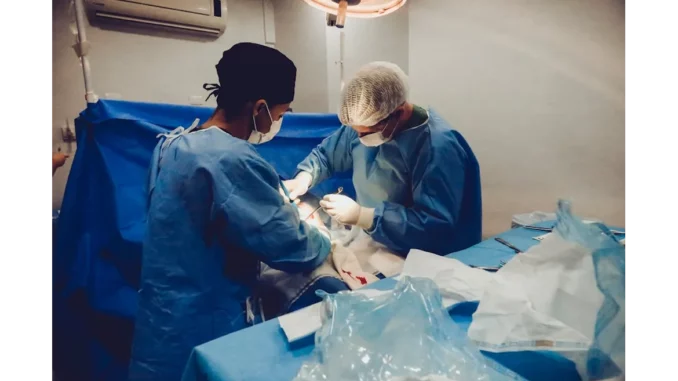
In recent years, the integration of artificial intelligence (AI) into the healthcare sector has heralded a transformative era, particularly within the domain of surgical training. Traditionally, video-based surgical learning has formed the backbone of medical education, employing recorded surgeries as educational tools. However, with the advent of AI technologies, this approach is experiencing a significant enhancement, leading to improved learning quality, real-time feedback, and personalised training experiences. By leveraging AI within video-based surgical learning, medical professionals are equipped to refine their skills, reduce errors, and ultimately enhance patient outcomes.
A pivotal aspect of AI’s influence on video-based surgical learning is its capacity for advanced video analysis. AI algorithms possess the ability to meticulously evaluate the precision, speed, and technique of surgical procedures, delivering detailed feedback to trainees. These sophisticated systems can identify critical surgical steps, such as suturing, cutting, or tissue handling, and assess whether these procedures are executed correctly. Furthermore, AI can monitor the overall workflow of a surgery, pinpointing deviations or inefficiencies that could signal potential errors. This capability allows trainees to recognise their strengths and weaknesses, thereby facilitating a more efficient and targeted learning process.
In addition to advanced analysis, AI-powered video-based systems provide the significant advantage of real-time, objective feedback to surgical trainees, either during or after a procedure. Unlike traditional methods where feedback might be delayed and subjective, AI offers immediate suggestions and insights. Such real-time feedback is invaluable, enabling trainees to make necessary adjustments and enhance their skills promptly. Moreover, AI fosters personalised learning experiences by tailoring training programmes to match an individual’s progress and specific needs. For instance, if a trainee consistently struggles with incision precision or suturing technique, the AI system can recommend additional resources, such as videos, tutorials, or practice exercises, tailored to those skills. By analysing past performances and identifying areas of difficulty, AI can suggest targeted exercises to enhance proficiency in areas requiring more attention.
Furthermore, AI-powered video-based platforms serve to foster collaboration and peer learning. By supplying objective data and visual cues regarding specific surgical actions, AI can stimulate discussions between trainees and instructors, fostering a community of knowledge sharing. This environment allows surgeons at various skill levels to learn from each other’s experiences. Advanced AI systems are capable of analysing video recordings of surgeries to discern not only the techniques employed but also the strategic choices made by surgeons, including surgical steps, tools used, and responses to complications. Trainees can thus learn to navigate complex cases by comparing their decisions with those of expert surgeons, leading to improved surgical judgment and better outcomes in actual surgeries.
Moreover, AI-powered video-based learning platforms hold the potential to democratise access to high-quality surgical education. By providing trainees with the tools and resources to learn at their own pace and according to their specific needs, AI contributes to bridging the gap in surgical training, particularly in underserved regions. This democratisation of education ensures that all trainees have the opportunity to develop their skills and improve patient care, irrespective of their geographical location or access to traditional training resources.
The integration of AI into video-based surgical training is revolutionising the field, offering unprecedented opportunities for medical professionals to enhance their skills and improve patient outcomes. By delivering advanced video analysis, real-time feedback, personalised learning experiences, and fostering collaboration, AI is establishing new standards for surgical education. As AI technologies continue to evolve, their role in surgical training is set to expand further, paving the way for a future where precision, safety, and efficiency are paramount in medical education. This progressive shift promises to elevate the quality of surgical training and, by extension, the calibre of patient care across the globe.


Be the first to comment